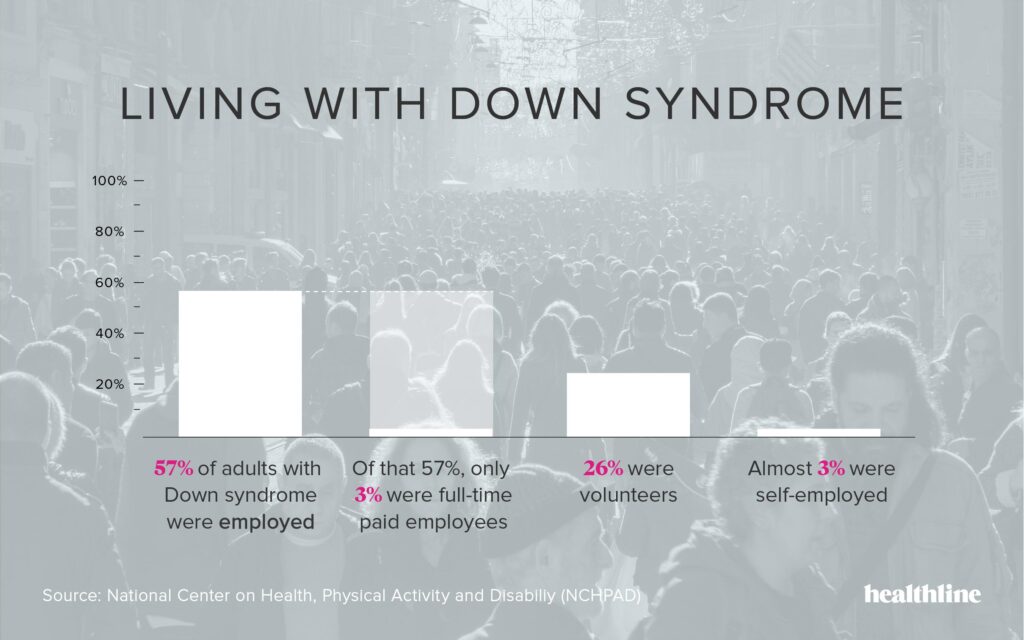What it entails to raise one with down syndrome

10123_down-syndrom-facts-v2
By Winfridah Muthee
As an expecting mother, one always looks forward to bringing forth a beautiful baby, one full of life with so many expectations for them in future.
The thought of having a baby with a chromosomal abnormality never crosses one’s mind.
What happens when the unexpected happens, you notice your baby is different from other babies.
You wait for your doctor to give you a diagnosis. A diagnosis you’re expecting but silently praying would be negative.
Your daughter or son has Down syndrome.
You are devastated by the news, you feel like you have been sucker-punched. You sob mourning the loss of the child you think you are supposed to have.
You cry because you believe this was not supposed to be.
You react in a human way and it is a natural response because the situation at the moment feels new.
I tell you what, that’s the most amazing baby in your world.
Down’s syndrome is a genetic disorder caused when abnormal cell division results in extra genetic material from chromosome 21.
Down’s syndrome causes a distinct facial appearance, intellectual disability and developmental delays. It may be associated with thyroid or heart disease.
About half those with Down syndrome are born with a heart defect that often requires surgery in early infancy. Babies with Down syndrome are also at an increased risk of leukemia and thyroid disorders.
By the age of 40, every person with Down syndrome has the pathology of Alzheimer’s in their brain. And there are a host of other less dramatic illnesses and disorders they are at increased risk of developing, such as sleep apnea, gastrointestinal blockages, ear infections, hearing loss, seizures, poor vision, skeletal problems and skin problems such as psoriasis.
But thanks to advances in medical care, most of these health issues can be easily managed. As a result, life spans have increased dramatically for people with Down syndrome. In 1910, a baby born with Down syndrome often didn’t live to age 10. Today, people with Down syndrome are expected to live to age 60 and beyond.
Common physical signs of Down syndrome include:
1.Decreased or poor muscle tone
2.Short neck, with excess skin at the back of the neck
3.Flattened facial profile and nose
4.Small head, ears, and mouth
5.Upward slanting eyes, often with a skin fold that comes out from the upper eyelid and covers the inner corner of the eye
6.White spots on the colored part of the eye
7.Wide, short hands with short fingers
8.A single, deep, crease across the palm of the hand
9.A deep groove between the first and second toes
In addition, physical development in children with Down syndrome is often slower than development of children without Down syndrome. For example, because of poor muscle tone, a child with Down syndrome may be slow to learn to turn over, sit, stand, and walk. Despite these delays, children with Down syndrome can learn to participate in physical exercise activities like other children. It may take children with Down syndrome longer than other children to reach developmental milestones, but they will eventually meet many of these milestones.
Early intervention programmes with a team of therapists and special educators who can treat each child’s specific situation are helpful in managing Down’s syndrome.
According to mumsworld.com, the annual mortality rate per 100,000 children from down syndrome in Kenya has decreased by 29.2% since 1990, an average of 1.3% a year. Though this has been the trend overall Down syndrome has changed over time for men and women of specific age groups in Kenya.
Many adults with Down syndrome live on their own or in group homes with some support. They hold jobs. They travel and have romantic relationships. Some even get married.
Children and adults who have Down’s syndrome are all unique individuals with their own personalities and family backgrounds.
They smile so big and gives hugs that melt your heart.
To all the mothers raising Down syndrome children, it’s alright to feel overwhelmed sometimes. Have your feelings, they are normal. Hold your beautiful baby and love him/her.
They are amazing little humans and so are you.
Embrace the unexpected and everything else will fall into place.





